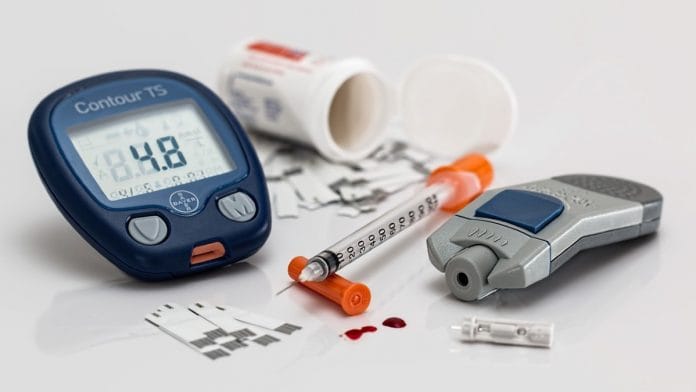New Delhi: An Odisha-based study has revealed that access to healthcare for people with non-communicable diseases (NCDs) — particularly cardiovascular disease, diabetes, chronic respiratory disease and cancer — was seriously hampered due to the pandemic.
Published Monday in the Indian Journal of Medical Research, the study found that of the total 491 people interviewed for the research, 36 per cent (177 people) “had some to substantial effect on their routine treatment”, and those in urban areas faced more difficulty than those in rural settings.
The research was conducted by the Regional Resource Hub, Health Technology Assessment in India, the Indian Council of Medical Research (ICMR) and the Department of Psychiatry at Kalinga Institute of Medical Sciences in Bhubaneswar.
The researchers noted that the findings have grave implications on the health of people suffering from NCDs and that these diseases have to be taken into account when planning for public health emergencies.
“Evidence from previous public health catastrophes and COVID-19 suggests that chronic illnesses may worsen by prevailing economic circumstances and changes in everyday health behaviour,” said the study.
Also read: Lack of awareness, stigma, long-drawn treatment — Why cleft care lags in India
The results
The researchers limited their area of study to the four diseases mentioned above, and conducted interviews from May to June in 2020. Half the participants were from urban areas while the other half from rural areas and 51 per cent of participants with one NDC were male.
Of the 491 people interviewed, about 37 per cent (182 people) “perceived that they were not able to take care of their chronic illnesses because of the prevailing social restriction/lockdown”.
“Those living in urban areas with more than one NCD condition reported a significantly higher challenge in having doctor’s consultation compared to those living in rural areas with a single NCD condition,” said the study.
“Similarly, urban-dwelling individuals with multiple NCD conditions had substantially discontinued care compared to their counterparts with a single NCD residing in rural settings,” it added.
Overall, 35 per cent (171 people) required an urgent visit to the hospital. And of these, 67 per cent (115 patients) encountered difficulties accessing day care procedures like dialysis. Similarly, 59 per cent or 104 people were not able to book urgent doctors appointments at hospitals.
Diagnostic services were among the “most significant barriers towards seeking treatment,” researchers found, apart from booking doctors consultations.
Also read: India unlikely to give indemnity to foreign vaccines, may consider only if shortage persists
Implications and suggestions of study
According to researchers, people living with NCDs “are at risk for adverse health consequences in emergency situations”.
Thus, they said, “addressing NCDs is an integral component of the planning for COVID-19 and future public health emergencies”.
The researchers further suggested that a strong “decentralized network of doctor-pharmacy-patients is necessary to tackle the NCD treatment needs during public health emergencies”, apart from strengthening tele-medicine services.
They also noted that improving home-based or self-care for these diseases, combined with health literacy and “community health-entrepreneurship model” could increase awareness about the diseases.
(Edited by Rachel John)
Also read: DNA markers linked to menopause identified, could help women conceive later in life






